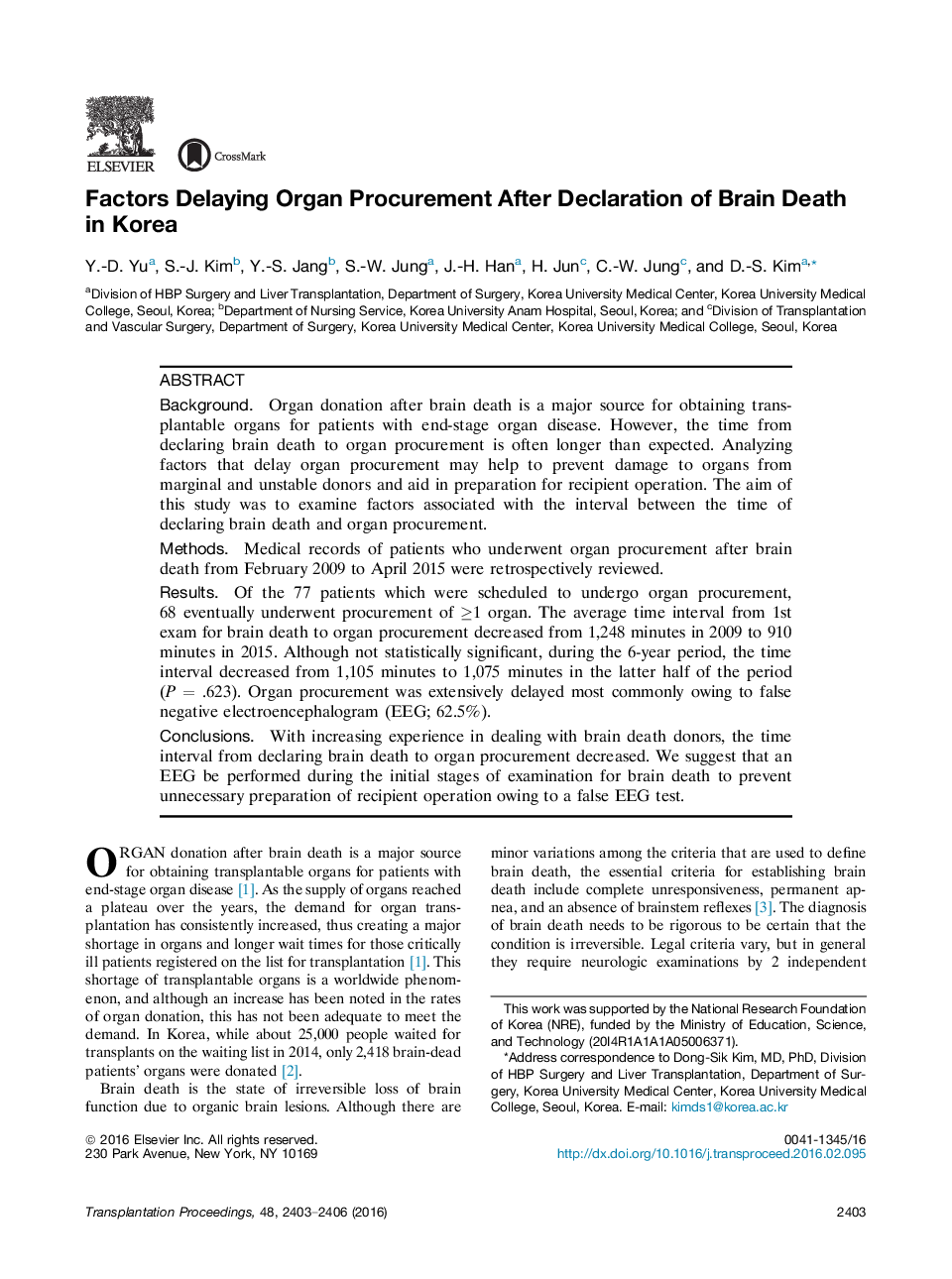| Article ID | Journal | Published Year | Pages | File Type |
|---|---|---|---|---|
| 5729378 | Transplantation Proceedings | 2016 | 4 Pages |
â¢Analyzing factors delaying procurement may prevent organ damage.â¢Organ procurement was delayed most commonly owing to false negative EEG.â¢We suggest that an EEG be performed during initial stages of examination for brain death.
BackgroundOrgan donation after brain death is a major source for obtaining transplantable organs for patients with end-stage organ disease. However, the time from declaring brain death to organ procurement is often longer than expected. Analyzing factors that delay organ procurement may help to prevent damage to organs from marginal and unstable donors and aid in preparation for recipient operation. The aim of this study was to examine factors associated with the interval between the time of declaring brain death and organ procurement.MethodsMedical records of patients who underwent organ procurement after brain death from February 2009 to April 2015 were retrospectively reviewed.ResultsOf the 77 patients which were scheduled to undergo organ procurement, 68 eventually underwent procurement of â¥1 organ. The average time interval from 1st exam for brain death to organ procurement decreased from 1,248 minutes in 2009 to 910 minutes in 2015. Although not statistically significant, during the 6-year period, the time interval decreased from 1,105 minutes to 1,075 minutes in the latter half of the period (P = .623). Organ procurement was extensively delayed most commonly owing to false negative electroencephalogram (EEG; 62.5%).ConclusionsWith increasing experience in dealing with brain death donors, the time interval from declaring brain death to organ procurement decreased. We suggest that an EEG be performed during the initial stages of examination for brain death to prevent unnecessary preparation of recipient operation owing to a false EEG test.
